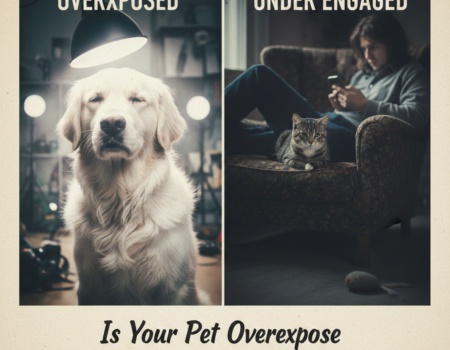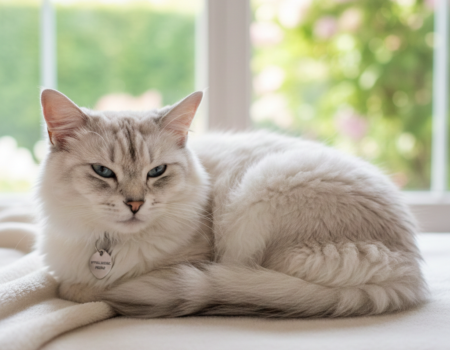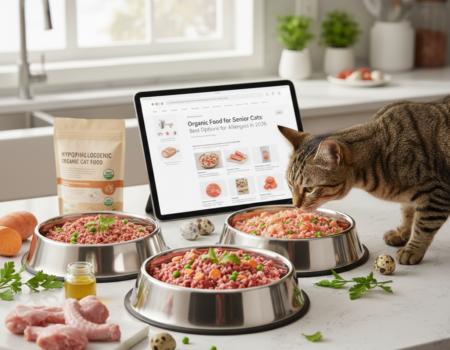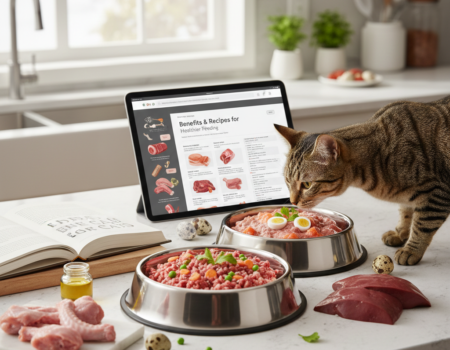How Much Does Cat Euthanasia Cost?
When a beloved companion reaches their final stages of life, pet owners often face difficult decisions. One option many consider is euthanasia, a gentle process designed to alleviate suffering. This choice requires both emotional clarity and practical awareness of what to expect.
In the United States, prices for this service typically range from $60 to $300. These figures reflect basic procedures at veterinary clinics. However, expenses can vary significantly based on location and specific provider offerings.
Several components influence the total expense. Clinic fees often cover sedation, medication administration, and professional support. Some providers include aftercare options like cremation, while others charge separately for these services.
Key Takeaways
- End-of-life care pricing depends on service type and location
- Basic procedures start at $60 in most areas
- Additional options may increase total expenses
- Veterinary clinics and mobile services offer different pricing structures
- Understanding service inclusions helps avoid unexpected charges
Later sections will explore how emergency visits, home services, and memorialization choices affect overall costs. Being informed helps families make decisions aligned with their needs and budget.
Overview of Cat Euthanasia
Deciding to end a feline companion’s suffering requires balancing empathy with medical reality. Euthanasia involves administering medications to painlessly stop vital functions, offering relief when chronic illness or injury diminishes well-being.
Understanding the Need
Veterinarians recommend this option when treatment no longer improves comfort. They evaluate factors like:
- Persistent pain unresponsive to medication
- Loss of appetite or mobility
- Inability to perform basic behaviors
Shelters sometimes face difficult choices when overcrowding limits care for sick or aggressive animals. In homes, families weigh financial constraints against their companion’s daily struggles.
The Humane Consideration
Compassion drives this decision. A peaceful passing often proves kinder than prolonged distress. “It’s about prioritizing dignity over duration,” explains one veterinary palliative care specialist.
Open dialogue with providers helps owners navigate emotional and ethical concerns. Many clinics offer private rooms or home visits to create calm environments during final moments.
How Much Does Cat Euthanasia Cost?
Planning a compassionate farewell involves practical budgeting alongside emotional readiness. Basic euthanasia services at veterinary clinics generally range from $60 to $300 nationwide. Urban centers like New York or San Francisco often charge 20-40% more than rural practices due to higher operational expenses.
- Clinic location (metro vs. suburban areas)
- Service type (in-clinic vs. mobile visits)
- Aftercare preferences (communal vs. private cremation)
Veterinary technician Maria Gonzalez notes: “Transparent cost discussions early in the process reduce stress during an already challenging time.” Some hospitals bundle sedation and memorial items, while others bill these separately.
Mobile services provide convenience but typically add $100-$150 to base fees. Emergency after-hours procedures may double standard rates. Always request a detailed breakdown before committing to services.
Budget-conscious owners should compare at least three local providers. Online reviews and clinic websites often list starting prices, though phone consultations yield the most accurate quotes. Remember that lower fees don’t always indicate compromised care quality.
Factors Influencing the Cost of Cat Euthanasia
The price of easing a pet’s suffering varies based on multiple considerations. Geographic location and clinic policies create significant differences in fees. Urban veterinary centers often charge 25-50% more than rural counterparts due to higher overhead expenses.
Location and Service Provider
Major cities like Chicago typically charge $150-$400 for standard procedures. Smaller towns in Illinois might offer similar services for $80-$250. Corporate veterinary chains sometimes provide fixed pricing, while independent clinics may adjust rates based on case complexity.
- Mobile appointments add $120-$200 for travel and time
- Emergency clinics charge premiums for after-hours care
- Nonprofit shelters often have subsidized rates
Medical Protocol Variations
Sedatives and anesthesia quality directly affect expenses. Premium intravenous drugs ensure faster, smoother transitions but increase costs by 30-60%. Basic intramuscular injections remain more affordable for budget-conscious families.
A veterinary anesthesiologist notes: “The right medication combination minimizes stress for both pets and owners.” Clinics using advanced monitoring equipment often reflect those investments in their pricing.
Understanding these variables helps families align their choices with financial realities and care standards. Always request itemized estimates to compare clinic offerings effectively.
Cost Comparison Across U.S. Cities
Final care expenses for feline companions vary widely between regions. Urban centers often charge higher fees due to increased operational demands and specialized service availability.
Price Ranges from Major Cities
Metropolitan areas show distinct pricing patterns. Below represents average fees from five U.S. locations:
| City | Low-End Average | High-End Average |
|---|---|---|
| Manhattan, NY | $220 | $400 |
| Dallas, TX | $130 | $280 |
| Miami, FL | $150 | $320 |
| Chicago, IL | $160 | $310 |
| Los Angeles, CA | $200 | $380 |
Coastal cities typically exceed national averages by 35-50%. Southern and Midwestern regions often provide more budget-friendly options. These differences stem from clinic overheads and local demand.
Owners can use regional data to estimate potential expenses. Comparing three local providers helps identify fair pricing. Always ask about hidden fees for after-hours care or special requests.
Veterinary consultant Dr. Ellen Torres advises: “Cross-reference online listings with phone consultations. Clinic websites might not reflect seasonal promotions or payment plans.” Nonprofit animal hospitals in some cities offer reduced rates for qualifying households.
Remember that pet care standards remain consistent across price points. Focus on finding compassionate providers who explain all options clearly during consultations.
Additional Fees and Aftercare Costs
Beyond the primary service, several factors can affect the total expense. Many families discover their initial quote doesn’t account for all necessary components. Understanding these potential add-ons helps prevent financial surprises during emotional moments.
Travel, Medications, and Miscellaneous Fees
Mobile veterinary visits often include mileage charges. A 20-mile radius might add $50-$75, while longer distances could exceed $120. After-hours appointments typically carry premium pricing—up to double standard rates in some regions.
Sedatives or pain management drugs sometimes incur separate charges. One clinic owner notes: “We explain medication options upfront so owners choose what’s best for their situation.” These extras might add $25-$80 depending on dosage needs.
Aftercare services significantly influence budgets. Basic communal cremation usually costs $40-$120, while private returns with memorial urns range from $150-$400. Burial plots in pet cemeteries start around $300 in most states.
Owners should ask providers about:
- Emergency surcharges for weekend or holiday visits
- Documentation fees for death certificates
- Storage costs if delaying cremation
Always request itemized estimates when comparing providers. This practice reveals which clinics bundle services versus charging à la carte. Planning for these expenses ensures families can focus on meaningful goodbyes rather than budget concerns.
Understanding the Euthanasia Process for Your Cat
Navigating a feline companion’s final moments requires understanding both medical protocols and emotional needs. Veterinary teams prioritize comfort and transparency throughout this sensitive experience.
Pre-Procedure Consultation
Veterinarians begin with a thorough health evaluation. They review medical history, discuss symptoms, and assess quality of life indicators. This conversation helps determine if other treatment options exist or if easing suffering becomes the priority.
Owners receive clear explanations about:
- Sedation methods to ensure calmness
- Medication types and administration process
- Aftercare choices like paw print memorials
Procedure Stages Explained
Most clinics start with a mild sedative to relax the animal. Once comfortable, the veterinarian administers a specialized solution through intravenous injection. Heartbeat and breathing cease gently within minutes.
Dr. Alicia Nguyen, a feline care specialist, notes: “Our monitoring equipment tracks vital signs continuously. We confirm peaceful passing before declaring completion.” Owners may stay throughout or choose private moments during specific stages.
Legal safeguards ensure ethical standards. All procedures follow state veterinary practice acts and require documented consent. Clinics maintain strict medication logs for accountability.
Comfort remains central at every phase. Soft blankets, quiet rooms, and family presence help create calm transitions. Many facilities offer grief support resources to help families process their loss afterward.
In-Home Versus Clinic Euthanasia Options
Selecting the right environment for a pet’s final moments significantly impacts both animals and their families. Many providers now offer mobile services alongside traditional clinic appointments, creating distinct experiences tailored to different needs.
Mobile Services and Home Visit Benefits
In-home procedures allow companions to remain in familiar surroundings, reducing stress during their last hours. Key advantages include:
- Elimination of clinic travel anxiety
- Flexible scheduling for family gatherings
- Personalized memorialization opportunities
Veterinary nurse Tyler Roberts observes: “Home visits let pets rest comfortably in their favorite spots—whether that’s a sunny windowsill or a cherished blanket.” Mobile teams bring necessary equipment discreetly, maintaining peacefulness throughout the process.
Clinic-based options often cost 30-40% less, with standard fees starting at $80. However, they may involve:
- Waiting room interactions with other animals
- Strict time constraints
- Limited personalization of the space
Travel fees for home visits typically add $100-$150, though some providers waive these within specific zip codes. Families with multiple pets or those seeking intimate farewells frequently prefer mobile services. Clinics better suit sudden emergencies or budget-focused situations.
Always discuss preferences early with your care team. Many veterinary networks now offer hybrid solutions, combining home consultations with follow-up clinic visits when needed.
When is Euthanasia the Humane Choice?
Making end-of-life decisions for a cherished animal companion tests even the most prepared caregivers. Veterinary professionals emphasize that prioritizing comfort over prolonged suffering often becomes necessary when specific physical and behavioral changes emerge.
Recognizing a Declining Quality of Life
Key indicators often signal when daily struggles outweigh moments of contentment. Persistent refusal to eat, inability to move without pain, or withdrawal from social interactions suggest diminishing well-being. “When basic joys like grooming or play disappear, it’s time for honest conversations,” advises Dr. Rebecca Simmons, a veterinary hospice specialist.
Chronic conditions like kidney failure or cancer may reach stages where medications no longer provide relief. Observing labored breathing, frequent vomiting, or unresponsiveness to touch helps families assess their companion’s experience objectively.
When Medical Options Are Exhausted
Modern veterinary care offers remarkable treatments, but some illnesses defy even aggressive therapies. A 2023 study revealed 18% of terminal feline cases had no viable curative options. Financial constraints or repeated hospitalizations might also make continuing treatment impractical.
Ethical considerations emerge when extending life prolongs distress. One animal behaviorist notes: “Peaceful transitions often spare pets from invasive procedures with low success rates.” Collaborative discussions with care teams help determine when comfort-focused approaches align best with a pet’s needs.
Families should weigh their companion’s daily experiences against medical realities. While deeply personal, this choice ultimately centers on preventing unnecessary suffering when recovery becomes impossible.
Private Cremation and Burial Services
Memorial choices form a crucial part of honoring a cherished companion’s legacy. Families often seek closure through personalized tributes that reflect their bond.
Personalized Memorial Options
Private cremation ensures individual handling of remains. Facilities process one animal at a time, returning ashes in sealed containers. Communal services group multiple pets, with no ashes returned. This distinction affects both privacy and keepsake availability.
Urns and burial tins serve as tangible reminders of companionship. “Families appreciate having a physical memorial,” shares a pet aftercare specialist. These items often feature engraved names or paw prints, adding sentimental value.
| Service Type | Average Cost | Includes |
|---|---|---|
| Private Cremation | $150-$300 | Individual processing, urn return |
| Communal Cremation | $50-$120 | Group processing, no remains |
Burial regulations vary by municipality. Most states allow home interment if depth requirements meet local codes. Dedicated pet cemeteries provide maintained plots with memorial markers, typically costing $400-$800.
When selecting services, consider:
- Desire for physical remains
- Budget for memorial products
- Local land use restrictions
Transparent providers explain these options during planning consultations. This clarity helps owners create meaningful tributes aligned with emotional needs and practical considerations.
Pet Insurance and End-of-Life Expenses
Navigating insurance coverage for a pet’s final needs requires careful policy examination. Many owners assume their plans automatically include end-of-life services, but coverage varies widely between providers.
Understanding Policy Limitations
Most standard policies exclude euthanasia unless medically necessary. Memorial services like cremation or urns rarely qualify for reimbursement. “Always check your policy’s fine print during enrollment,” advises Dr. Karen Wright, a veterinary financial advisor. Pre-existing conditions or age-related declines often trigger claim denials for final care expenses.
Some insurers offer add-on packages for senior animals. These may cover:
- Pain management consultations
- Sedation medications
- Basic communal cremation
| Coverage Type | Typical Inclusion | Common Exclusions |
|---|---|---|
| Accident-Only Plans | Emergency euthanasia | Elective procedures |
| Comprehensive Plans | Terminal illness care | Memorial products |
Review policy documents annually, especially as pets age. Several providers now offer dedicated end-of-life riders for an additional 15-30% premium increase. These specialized plans help offset costs for families prioritizing predictable budgeting.
Financial planning remains crucial regardless of insurance status. Setting aside $50 monthly creates a safety net for unexpected final care needs. Open conversations with veterinarians about payment plans or nonprofit assistance programs can ease financial pressures during emotional transitions.
Pricing Tiers for Euthanasia and Cremation Services
Understanding available memorial packages helps owners make informed decisions during emotional times. Providers structure services into tiers that balance affordability with personalization.
Owner Requested Euthanasia Options
Base fees cover essential care, while add-ons address specific memorial preferences. Small mammals like rabbits typically cost $60-$120. Feline services range from $80-$250 depending on weight and clinic policies.
| Animal Type | Basic Euthanasia | With Communal Cremation | With Private Cremation |
|---|---|---|---|
| Dogs (under 30 lbs) | $110 | $160 | $240 |
| Cats | $90 | $140 | $210 |
| Small Mammals | $70 | $100 | $170 |
Different Service Packages and Their Costs
Communal options provide budget-friendly solutions without individual remains returned. Private cremation includes ashes in a simple container, while premium packages add engraved urns or clay paw prints.
One veterinary service manager explains: “Families appreciate knowing exactly what each tier includes before making decisions.” Mid-range bundles often combine sedation medications with memorial certificates.
Key considerations when comparing packages:
- Inclusion of grief support resources
- Transportation fees for remains
- Turnaround time for ash returns
Transparent providers outline these details upfront, allowing owners to choose services that honor their companions without financial strain.
Understanding Memorial Options for Your Cat
Honoring a feline friend’s memory brings comfort during times of loss. Thoughtful tributes help families celebrate shared bonds while navigating grief. Modern memorial services offer diverse ways to preserve legacies with dignity.
Keepsakes and Urn Collections
Personalized items transform memories into tangible treasures. Many providers offer engraved urns, clay paw impressions, or fur clippings. “These mementos become cherished family heirlooms,” notes a memorial service director. Custom jewelry holding small ash portions allows owners to keep companions close.
| Service Type | Average Cost | Key Features |
|---|---|---|
| Private Cremation | $150-$300 | Individual processing, ash return |
| Communal Cremation | $50-$120 | Group memorial, no remains |
| Home Burial | $0-$400 | Personalized site, local regulations apply |
Cremation suits urban dwellers or those wanting portable memorials. Burial provides physical resting places but requires land access. Consider climate, future relocations, and local ordinances when choosing.
Memorial gardens or donation programs offer alternative tributes. Some families plant trees or sponsor shelter animals in their pet’s name. These acts create lasting positive impacts while honoring unique personalities.
Select services reflecting your companion’s spirit. Vibrant urns suit playful cats, while nature-themed options memorialize outdoor adventurers. Providers often share catalogs to simplify decision-making during emotional periods.
How to Prepare for the Euthanasia Appointment
Preparing for a companion’s final moments involves both practical arrangements and emotional readiness. Thoughtful planning helps create a peaceful environment while respecting everyone’s needs during this transition.
Pre-Appointment Consultations and Home Preparation
Veterinary teams typically schedule a phone consultation 24-48 hours beforehand. This discussion covers medication schedules, preferred comfort items, and aftercare preferences. “We ask owners to prepare a quiet space with familiar bedding,” shares Dr. Lisa Monroe, a home care veterinarian.
Essential steps include:
- Confirming appointment time and location details
- Gathering medical records and insurance documents
- Setting up a designated area with water and treats
Setting Expectations for the Day
Most procedures follow a three-stage timeline: initial sedation (10-15 minutes), final medication administration (5 minutes), and confirmation of peaceful passing. Families can choose to be present throughout or during specific phases.
Practical considerations improve comfort:
- Arrive early to complete paperwork calmly
- Bring a carrier for safe transport if needed
- Prepare payment methods in advance
Clinic staff often provide tissue boxes and private exits to maintain dignity during emotional departures. Mobile services may suggest turning off doorbells to minimize disruptions. These small preparations help focus energy on meaningful farewells rather than logistical concerns.
Conclusion
Saying goodbye to a cherished feline friend involves both emotional and practical considerations. Service options range from clinic visits to home appointments, with costs reflecting location, provider type, and memorial preferences. Understanding these variables helps families create compassionate transitions aligned with their values.
Regional price differences highlight the importance of comparing local providers. Memorial choices like private cremation allow personalized tributes, while burial services offer physical resting places. Transparent clinics detail all inclusions, from sedation to ash returns, preventing unexpected expenses.
Every decision carries weight during this sensitive time. This guide aims to clarify processes while honoring the bond between owners and their companions. “Prioritize peace of mind,” suggests one veterinary social worker. “Knowledge empowers families to focus on meaningful moments rather than logistical stress.”
When facing final care decisions, lean on trusted professionals and community resources. Thoughtful preparation transforms challenging choices into acts of love, ensuring dignity for beloved pets in their final chapter.
FAQ
What factors influence euthanasia pricing?
Costs vary based on location, service provider fees, anesthesia type, and aftercare choices like private cremation or burial. Urban clinics often charge more than rural providers.
Are in-home services more expensive than clinic visits?
Yes. Mobile veterinary euthanasia typically costs $50–$150 extra due to travel fees. However, it offers comfort for pets and owners during the process.
Does pet insurance cover end-of-life expenses?
Some policies include euthanasia or cremation, but many exclude pre-existing conditions. Review your plan’s limitations and exclusions beforehand.
What memorial options exist after euthanasia?
Owners can choose urns, paw-print keepsakes, or customized jewelry. Private cremation ensures ashes are returned, while communal options don’t.
How do pre-appointment consultations work?
Vets assess the cat’s health, discuss the procedure, and address concerns. This step helps families prepare emotionally and logistically for the appointment.
What’s included in euthanasia service packages?
Basic tiers cover sedation and the procedure. Premium packages may include grief support, memorial items, or private aftercare like burial arrangements.
Why do anesthesia drugs affect pricing?
Advanced sedation ensures a painless process but raises costs. Injectable solutions vary in potency and duration, influencing overall fees.
How can I recognize when euthanasia is necessary?
Chronic pain, loss of appetite, or inability to move signal declining quality of life. Vets recommend euthanasia when treatment no longer improves comfort.













No Comment! Be the first one.